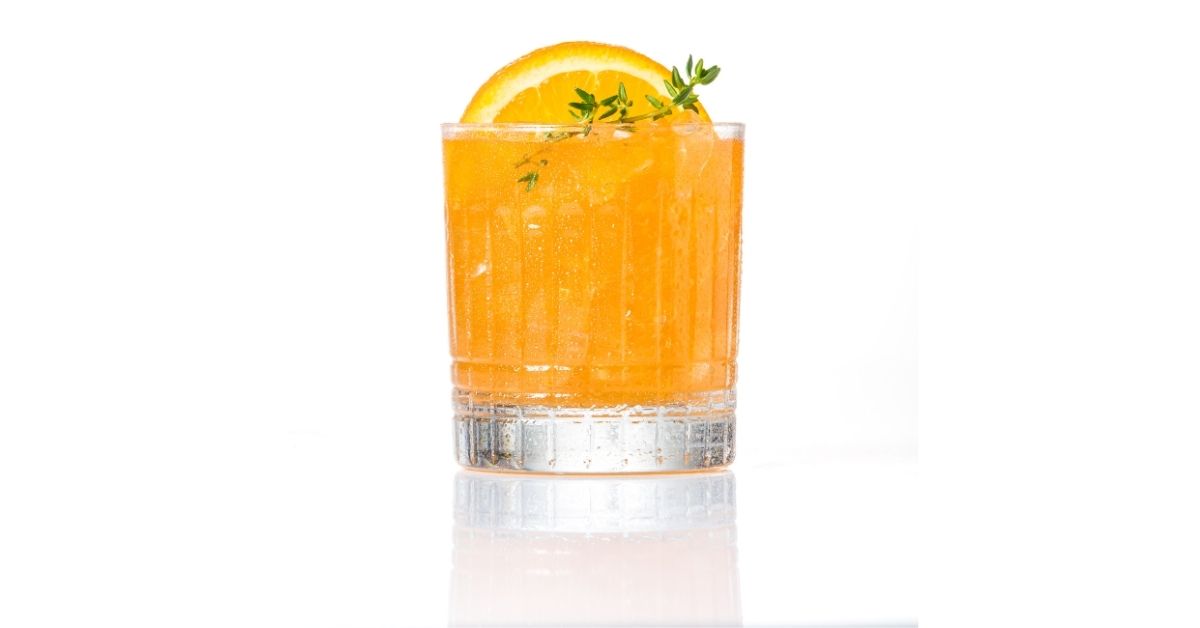Yes, most orange sodas are caffeine-free, but some, like Sunkist Orange, contain caffeine.
Does Orange Soda Have Caffeine?
Let’s get right to the point – the answer isn’t always straightforward. While most orange sodas don’t contain caffeine, there are a few notable exceptions that’ll give you a surprising jolt. So, if you’re watching your caffeine intake, knowing what’s in your bubbly orange drink is essential.
Why Does This Matter?
Caffeine is a stimulant, which means it can temporarily boost alertness and energy. While it’s a pick-me-up for many, it can have some less-than-pleasant side effects, like:
- Jitters and anxiety
- Difficulty sleeping
- Headaches
- Increased heart rate
Kids and folks who are pregnant or have certain medical conditions may be more sensitive to caffeine. So, it’s important to be aware of hidden caffeine sources like orange soda.
Popular Orange Sodas: Caffeine or Caffeine-Free?
Let’s look at some of the most popular orange soda brands to see which have caffeine and which don’t:
| Brand | Caffeine? | Caffeine Amount (if applicable) |
| Fanta Orange | No | – |
| Crush Orange | No | – |
| Mirinda Orange | No | – |
| Sunkist Orange | Yes | 41 mg per 12 fl oz can |
Sneaky Caffeine in Orange Soda
You might think that vibrant orange color is a surefire sign of a caffeine-free drink, but this isn’t always the case. While most citrus soda flavors are safe, here’s why you should always double-check:
- Brand Variations: Some brands, like Sunkist, have caffeinated versions of their orange soda alongside caffeine-free options.
- Flavor Combinations: Drinks that mix orange with other flavors, like cherry-orange, might sneak in some caffeine from other sources.
How to Tell if Your Orange Soda Has Caffeine
The best way to know for sure is to check the ingredients list on the can or bottle. Caffeine will be listed there. Remember, even if it doesn’t say “caffeine,” look for these ingredients, which also contain caffeine:
- Guarana extract
- Kola nut extract
- Green tea extract
Decoding Nutrition Labels
Here’s a quick guide to reading the caffeine content on your orange soda’s nutrition label:
- Serving Size: This is how much of the soda the caffeine content refers to.
- mg per Serving: This tells you how many milligrams of caffeine are in one serving.
- mg per Container: Some sodas list the total caffeine for the entire can or bottle.
How Much Caffeine is Too Much?
The FDA recommends adults limit their caffeine intake to 400 mg per day. That’s about four or five cups of coffee. Kids and teens should have even less. A single can of Sunkist, for example, contains about 10% of the recommended daily limit for adults.
Caffeine-Free Alternatives
If you’re looking for a fizzy orange fix without the caffeine kick, there are plenty of tasty options available. Most popular brands offer caffeine-free versions of their orange soda. You can also try:
- Naturally Flavored Sparkling Water: Add a squeeze of fresh orange for a refreshing and healthy drink.
- Orange Juice: Enjoy the benefits of vitamin C and other nutrients.
- Herbal Tea: Look for blends with orange peel or citrus flavors.
Caffeine and Your Health
While caffeine can be a helpful pick-me-up within limits, it’s definitely possible to overdo it. Here’s what you need to know about how caffeine can affect your health:
- Sleep Disruption: Caffeine can make it harder to fall asleep and stay asleep, especially if consumed later in the day.
- Anxiety and Jitters: For some people, caffeine can heighten feelings of anxiety, restlessness, and nervousness.
- Digestive Issues: Caffeine can trigger acid reflux, heartburn, and other uncomfortable digestive symptoms.
- Interactions with Medications: Caffeine can interact with certain medications, so it’s best to check with your doctor if you have concerns.
Who Should Be Extra Careful About Caffeine Intake?
These groups may be more sensitive to caffeine’s effects:
- Children and Teens: Their bodies are still developing, and caffeine can impact their sleep, mood, and concentration.
- Pregnant or Breastfeeding Women: Caffeine can cross the placenta and enter breast milk, so it’s best to limit or avoid it during these stages.
- People with Anxiety Disorders: Since caffeine can worsen anxiety symptoms, those with anxiety disorders should use it with caution.
- People with Certain Medical Conditions: Heart problems, high blood pressure, and kidney issues can all be exacerbated by caffeine intake.
How to Cut Back on Caffeine
If you’re looking to reduce your caffeine consumption, here are some helpful tips:
- Gradual Reduction: Decreasing your intake slowly will help minimize withdrawal symptoms like headaches and fatigue.
- Switch to Decaf: Try caffeine-free versions of your favorite drinks, including orange soda.
- Hydrate with Water: Staying well-hydrated reduces cravings for sugary, caffeinated beverages.
- Check Labels: Be mindful of hidden caffeine in foods and drinks.
Caffeine Content in Other Drinks
It’s not just orange soda – caffeine can be found in a surprising variety of beverages. Here’s a quick comparison of the caffeine content in some popular drinks:
| Drink | Serving Size | Caffeine Content |
| Brewed coffee | 8 fl oz | 95-200 mg |
| Black tea | 8 fl oz | 47-90 mg |
| Green tea | 8 fl oz | 28-48 mg |
| Energy drink | 8.4 fl oz | 80-150 mg |
| Sunkist Orange Soda | 12 fl oz | 41 mg |
| Cola-flavored soda | 12 fl oz | 30-60 mg |
Conclusion- Does Orange Soda Have Caffeine?
So, does orange soda have caffeine? Sometimes yes, sometimes no. It always depends on the specific brand and flavor. Remember, being an informed consumer is your best bet when it comes to managing your caffeine intake. By carefully checking labels and making mindful choices, you can enjoy your favorite drinks without the unwanted side effects!
